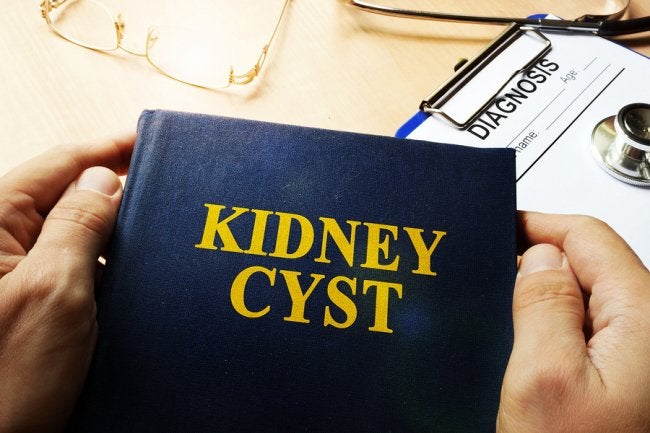-
Living with Kidney Cysts

Cysts are noncancerous, fluid-filled sacs. They can develop in many different places in your body, and they aren’t always harmful. However, cysts in the kidneys can be dangerous. If you experience any possible symptoms of kidney cysts, or if your family doctor diagnoses you with polycystic kidney disease, you’ll need to work with a urologist to learn how to reduce your risk of complications.
Understanding Kidney Cysts
Kidney cysts can develop in people as they grow older. In many cases, they remain too small to cause any problems, and it’s possible to have a cyst or two without even knowing it. It isn’t quite known exactly why older adults are susceptible to kidney cysts , but some urologists suspect that it’s because the surface of the kidneys weaken later in life. Other people develop kidney cysts because of an inherited condition called polycystic kidney disease (PKD). Although the severity of this disease can vary from patient to patient, it’s possible for it to lead to severe complications, including kidney failure.
Identifying the Signs and Symptoms
Polycystic kidney disease usually begins causing symptoms after age 30 or 40. Cysts that develop in people without PKD are typically not diagnosed in patients younger than 50. Kidney cysts can cause these symptoms:
- Frequent urination
- Pain in the back or belly
- Pain in the side between the hip and ribs
- Fever
- Dark urine
- Bloody urine
In addition, people with PKD may develop these symptoms and complications:
- Extremely high blood pressure that causes a headache
- Chest pain
- Fluttering in the chest
- Frequent kidney and urinary tract infections
- Increased abdominal size
- Feeling of fullness in the abdomen
- Kidney stones
- Kidney failure
Exploring Your Treatment Options
If your kidney cysts aren’t caused by a disease, and they’re too small to cause symptoms, you might not need any treatment. Otherwise, your urologist may recommend surgical removal of the cyst. If you do have PKD, your treatment plan will depend on the complications you have. You may need medications to control high blood pressure, antibiotics to treat bladder or kidney infections, or dialysis to treat kidney failure.
Patients in Nashville with urologic health issues will find the thoughtful medical guidance and compassionate care they need at Urology Associates, P.C. We are a full-service urology clinic that provides cutting-edge treatments and comprehensive support for our patients. Schedule your consultation with one of our board certified urologists today by calling (615) 250-9200.
Recent Posts
categories
- Uncategorized
- Bladder Cancer
- Women's Sexual Health
- MonaLisa Touch
- Urology
- Urologist
- Erectile Dysfunction
- Kidney Cancer
- Incontinence
- Prostate
- MonaLisa Touch Laser Treatment
- Kidney Stones
- Urinary Tract Infections
- Event
- Sexual Dysfunction
- Testicular Cancer
- Prostate Cancer
- Urology Surgery Center
- urinary incontinence
- vaginismus
- noncoital pain disorder
- Hypoactive Sexual Desire Disorder
- Infographic
- provenge
- Xofigo
- robotic surgery
- hormone replacement
- diabetes
- renal cell carcinoma
- pelvic pain
- hematuria
- sexual health
- chronic testicular pain
- premature ejaculation
- Men's Health Clinic
- Dr. Melvin Seard
- Interstitial Cystitis
- vasectomy
- overactive bladder
- vaginal atrophy
- nocturia
- bladder infections
- urethral strictures
- Acute Epididymitis
- low sex drive
- circumcision
- pelvic floor dysfunction
- Peyronie's Disease
- prostatitis
- female sexual dysfunction
- varicocele
- difficult urination
- low libido
- PSA levels
- male fertility
- penile prosthesis
- prostatic intraepithelial neoplasia
- male infertility
- estrogen levels
- nurse navigator
- stress urinary incontinence
- vaginal yeast infection
- elevated psa
- painful sex
- adult circumcision
- epididymitis
- OAB
- kidney infection
- penile cancer
- pelvic organ prolapse
- Vasectomy Reversal
- bone health
- cystectomies
- clinical trials
- bloody urine
- Advanced Therapeutic Center
- WISH MedSpa
- neurogenic bladder
- WISH Team
- prostate biopsies
- BPH
- fecal incontinence
- lithotripsy
- osteoporosis
- kidney cysts
